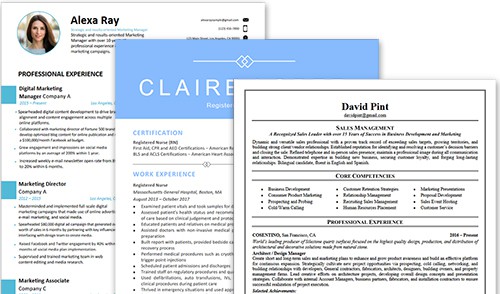5 Tips For Negotiating Your Salary
Don’t lose your chance at more money just because you didn’t bother to negotiate your salary the right way.

A study done by the Journal of Organizational Behavior found that failing to negotiate on your initial job offer could mean losing out on over $500,000 in salary over the period of an entire career. How you might ask? Well assuming an average salary increase of 5% per year of a job starting at $50,000 as oppose to $55,000, this would lead to a $500,000 loss over a 40-year career period.
That’s a whole lot of money, and it’s not worth throwing it all away just because you’re too afraid or uncomfortable to talk salary negotiations. One of the big reasons why is because jobseekers simply don’t know how to approach this touchy topic. I mean, who would want to get into a salary debate with their potential employer and boss! Well chin up, methodically going about salary negotiations is vital to getting the salary you deserve, so here’s some top advice on how to do just that.
Need help writing your resume? Our resume writing services will allow you to secure more job interviews and ultimately earn a higher salary.
1. Learn your value
Before you can even begin with your negotiations, the first thing you’ve got to figure out is how much you’re worth. One of the biggest indicators to keep in mind is obviously your salary from your most recent job. Of course, this isn’t the only determining factor. You could always have been under or overpaid in the past. Thankfully there are some online resources like from Payscale and Glassdoor that can help determine your value. If you’re still unsure, you can always ask recruiters and HR professionals who are experts on this type of matter.
2. Offer an exact number
It’s all about mind games. Researchers at Columbia Business University found that asking for a specific salary number such as $71,450 rather than $70,000 can yield higher final offers when everything is set and done. This is because employers often assume you’ve done your due diligence in researching your true worth when offering such a specific number. On top of that, it shows you’re a bit firmer on your position. If you say around $70,000, that just seems far more wishy washy.
3. Shoot for the top of your range
Once you’ve discovered how much you’re worth, you should determine a salary range that you’re willing to shoot for. Once you do, ask for a salary amount at the very top of that range. Why? Because it can only go down from there. It would be mindbogglingly awesome if employers ever offered more, but of course that is never the case. This is a negotiation, so your employers are going to want to talk your salary price down. Shoot for the middle and you’ll end up near the bottom, so instead, aim for the top and hopefully you can prevent it from going too far down.
4. Negotiate on a Thursday/Friday
Debbie Moskowitz, Ph.D., a psychologist at McGill University, reported on Psychology Today that people tend to start off the business week more disagreeable and willing to engage in conflict. As the week progresses, people become more agreeable and hardline behavior disappears. This is perhaps because we’re all eagerly awaiting the upcoming weekend. When Thursday and Friday come along, we’re all simply hoping to get the day over with and finish our work before weekend arrives.
5. Be willing to walk
Part of being a smart negotiator means you know when to give up on the deal. If you know how much you’re worth and the company offers you less, then simply don’t take it. There’s a reason why you came into the negotiation with a salary range you’re willing to accept. Of course, it’s never easy to walk away from a salary offer. But always remind yourself that you are valuable. There will always be other companies out there willing to pay you for how much you’re worth. So don’t lowball yourself!
